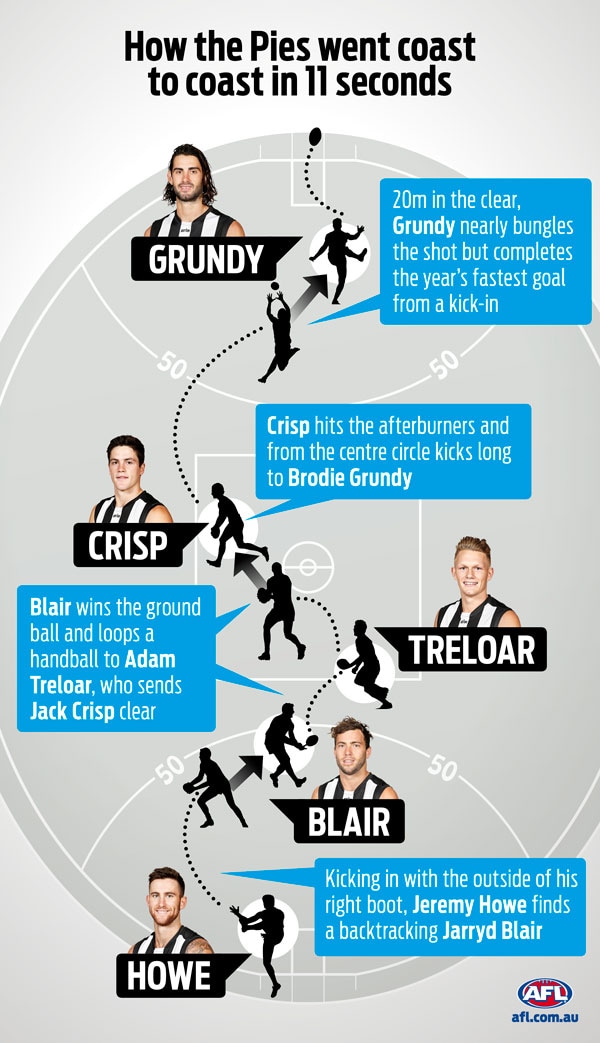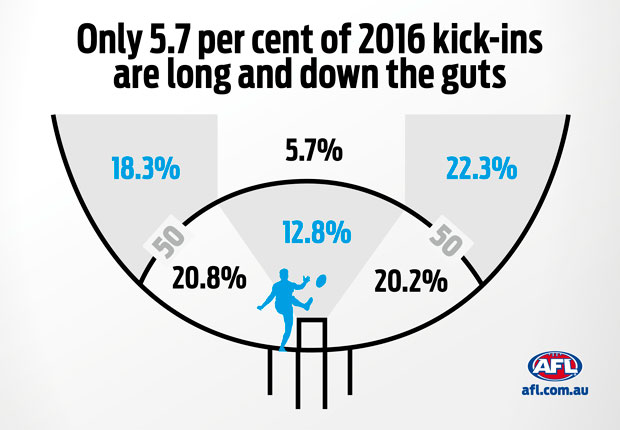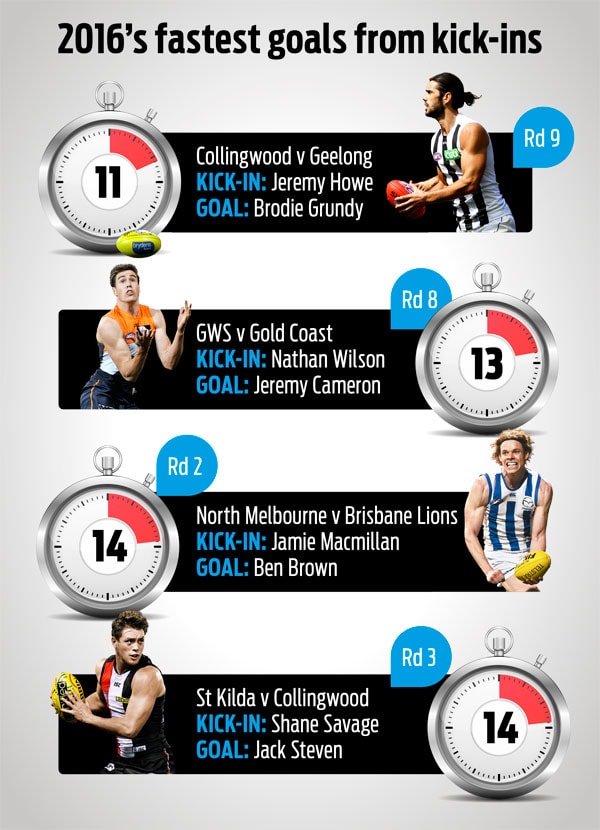
IT TOOK only one brave kick and 11 seconds for Collingwood to steady its wobbles against Geelong at the MCG on Saturday.
The contest was balanced on a knife-edge after the surging Cats had eroded a 27-point three-quarter time deficit to just eight early in the final term before Jeremy Howe took a huge risk – and it paid off big time.
Howe backed himself to hit the Magpies' shortest player, 174cm Jarryd Blair, straight down the middle, just outside the defensive 50m, with a flat pass.
Blair spilt the mark under pressure from Patrick Dangerfield, but recovered and looped a handball to Adam Treloar, who moved it on to Jack Crisp, whose penetrating kick found Brodie Grundy running into an open goal.

It was an extreme case of risk-reward football and the fastest coast-to-coast goal this season (11 seconds from Howe to Grundy's boot), according to Champion Data.
From that moment, momentum swung back in the Pies' favour, and pleasingly for coach Nathan Buckley it was a sign that Collingwood dared to win.
"One of our boys said (at three-quarter time) this is our game to lose. In the end, we came out of that and said 'Yeah, I understand that sentiment, but let's keep going to win it'," Buckley said post-match.
"I think that's an important mentality to have, because they're both right.
"We were able to keep our heads under real pressure."
Grundy slots through this important goal... just! #AFLPiesCats https://t.co/oqP08Zh1fF
— AFL (@AFL) May 21, 2016
Howe's gutsy kick was a surprise tactic.
Fewer than 6 per cent of kick-ins have been directed long and down the centre corridor this season, and that option is usually reserved for teams playing catch-up in the dying stages.

But Collingwood was ahead and could have played it safe with 14 minutes left on the clock, especially given the Pies are ranked 15th for percentage of scores generated from kick-ins in 2016.
Only Fremantle, Essendon and Richmond have fared worse this season.
At the top of the tree are Etihad Stadium tenants the Western Bulldogs, North Melbourne and St Kilda, who have played 18 games combined on a home ground that promotes fast footy under the roof.
No side is better than the marauding Doggies at sweeping the ball inside attacking 50 from a kick-in (30.9 per cent), followed by fellow top-four aspirants Greater Western Sydney (26.5) and Hawthorn (26.1).
The Saints want the ball in Shane Savage's hands, with the rebounding half-back taking 38 kick-ins and the team scoring from seven (AFL ranking No.2 for players with more than 20 kick-ins).

These days, however, most clubs share the high-pressure role around, but not last year's Grand Final combatants the Eagles and Hawthorn.
West Coast superboot Shannon Hurn (71) has taken the most kick-ins in the competition, with Adam Simpson using his skipper's booming 70m range as an attacking weapon to escape the narrow ends at Domain Stadium.
The next most by an Eagle is Jeremy McGovern (13), while the Hawks usually entrust reliable left-footer Grant Birchall (49) with the job ahead of back pocket Taylor Duryea (17).
For years, the Hawks have schooled the competition at moving the ball with precision.
But most of their flag rivals are catching up.
Every current top eight team averages better than one in five successful transitions from kick-in to attacking 50m.
The only side way off the pace? Fremantle.
Not even one in 10 of the Dockers' kick-in chains have reached attacking 50 in their annus horribilis, another unwanted sign of a miserably failed plan to improve their ball movement.
STATS QUIRK OF THE WEEK: Heath Shaw topped the VFL/AFL record books by completing 36 kicks against the Bulldogs without missing a target. The previous record-holder was Richmond's Joel Bowden, who racked up 32 kicks at 100 per cent efficiency in round 13, 2008.



